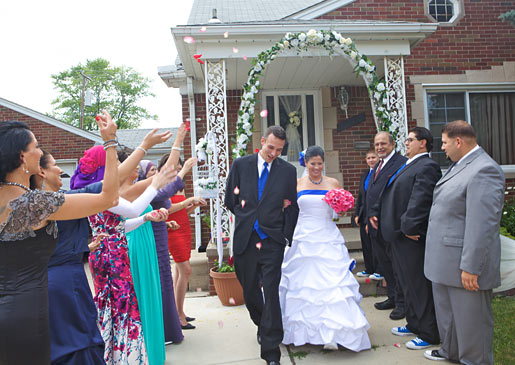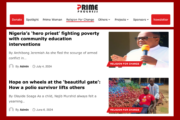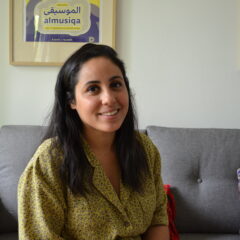This post originally appeared on Trans/Missions, the USC Knight Chair in Media and Religion site.
When TLC first aired “All-American Muslim,” the show met with some harsh criticism from within the Muslim community. In general the complaints went like this: 1) “All American” doesn’t represent the racial and ethnic diversity of American Muslims, 2) the cast isn’t religious enough and 3) picking all Shias meant that the show offered viewers too narrow a slice of the all-American Muslim pie.
But this in-house scuttlebutt faded quickly as a better adversary than TLC’s casting choices emerged. The Florida Family Association condemned the show for its “normalizing” of Muslims and its failure to spotlight the twin threats of terrorism and creeping Sharia that the FFA believes Islam inevitably poses. But the FFA didn’t stop there, and the organization’s doggedness is what got the ball really rolling. It pressured advertisers to withdraw support for the show, and two sponsors–Lowes and (with some dissembling) Kayak–eventually complied.
Matches meet gasoline! A firestorm of commentary erupted, with pundits either congratulating or excoriating the two companies for pulling their ads from the program’s remaining episodes.
Since the FFA story broke, much of the reporting has focused on the boycott of Lowes and the half-baked apology from Kayak’s chief marketing officer. Coverage has basically offered a sort of play-by-play summary of the conflict between the FFA, on the one side, and American Muslims and their supporters on the other. Corporate entities, who probably all want to bury their heads in the sand, have fumbled through a series of awkward and inadvertently headline-making responses to the controversy.
But the more interesting story is how this PR train-wreck has become a singular occasion for networking and community-building among Muslims in the U.S. For reporters, there is an opportunity to get beyond the superficial–and shopworn–soundbites and examine the rapid, media-savvy response from American Muslims. It’s worth observing, following the lead of Eboo Patel, that in the decade of post-9/11 advocacy and engagement this might first time that the instigator of an effort to demonize the whole Muslim community has paid a high price. In fact, the bandwagon for those decrying the un-American nature of the FFA’s campaign against the all-American show keeps getting bigger. The FFA website was hacked by Anonymous, elected officials have spoken out, Moveon.org and Change.org have launched online petitions, community groups including the Anti-Defamation League have issued statements and Facebook and twitter have hashtags and groups coalescing right and left.
It is no surprise that most of the energy for this anti-FFA response is coming largely from our virtual worlds. In part, that has to do with the fact that reality TV has become the touchstone for our media-saturated culture. It wasn’t the years of civil rights violations, anti-immigrant legislation or anti-Sharia hysteria that brought us to a tipping point and enlisted the starpower of Russell Simons, Perez Hilton and Kal Penn. Rather, it was a religious conservative’s challenging the reality of “reality.”
Perhaps that’s a sad commentary on the state of our broken democracy. In any case, it’s also worth pondering whether the FFA has unwittingly heralded a new era of American Muslim community engagement replete with powerful allies, field-tested PR tactics and socially networked activists. Reporters would be wise to tune in.
Brie Loskota is the former executive director (2016-2021) of the USC Center for Religion and Civil Culture.







